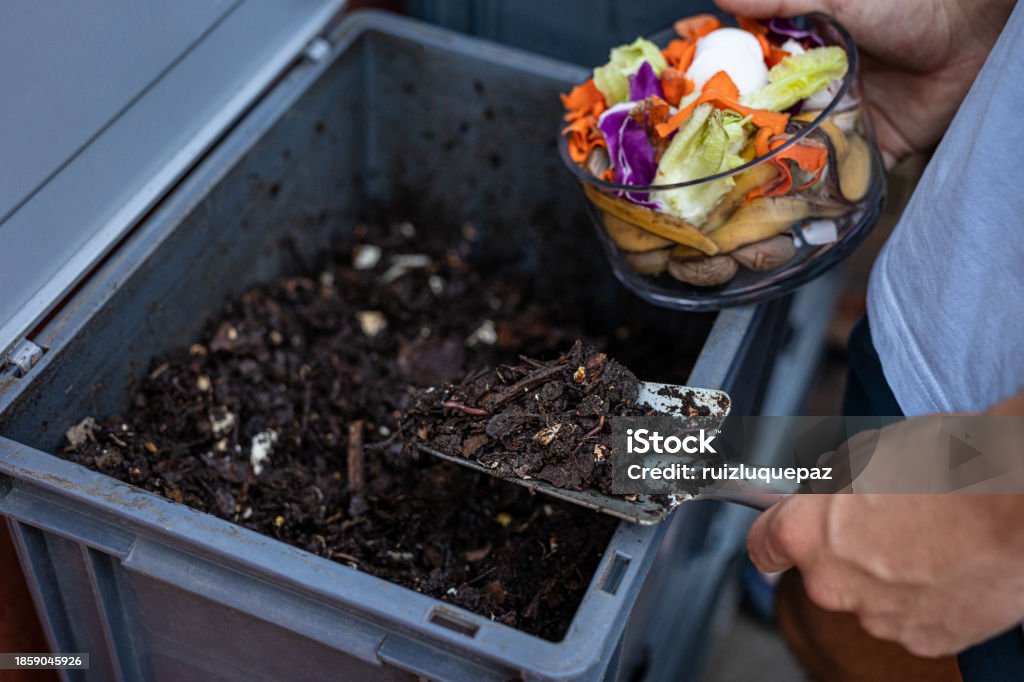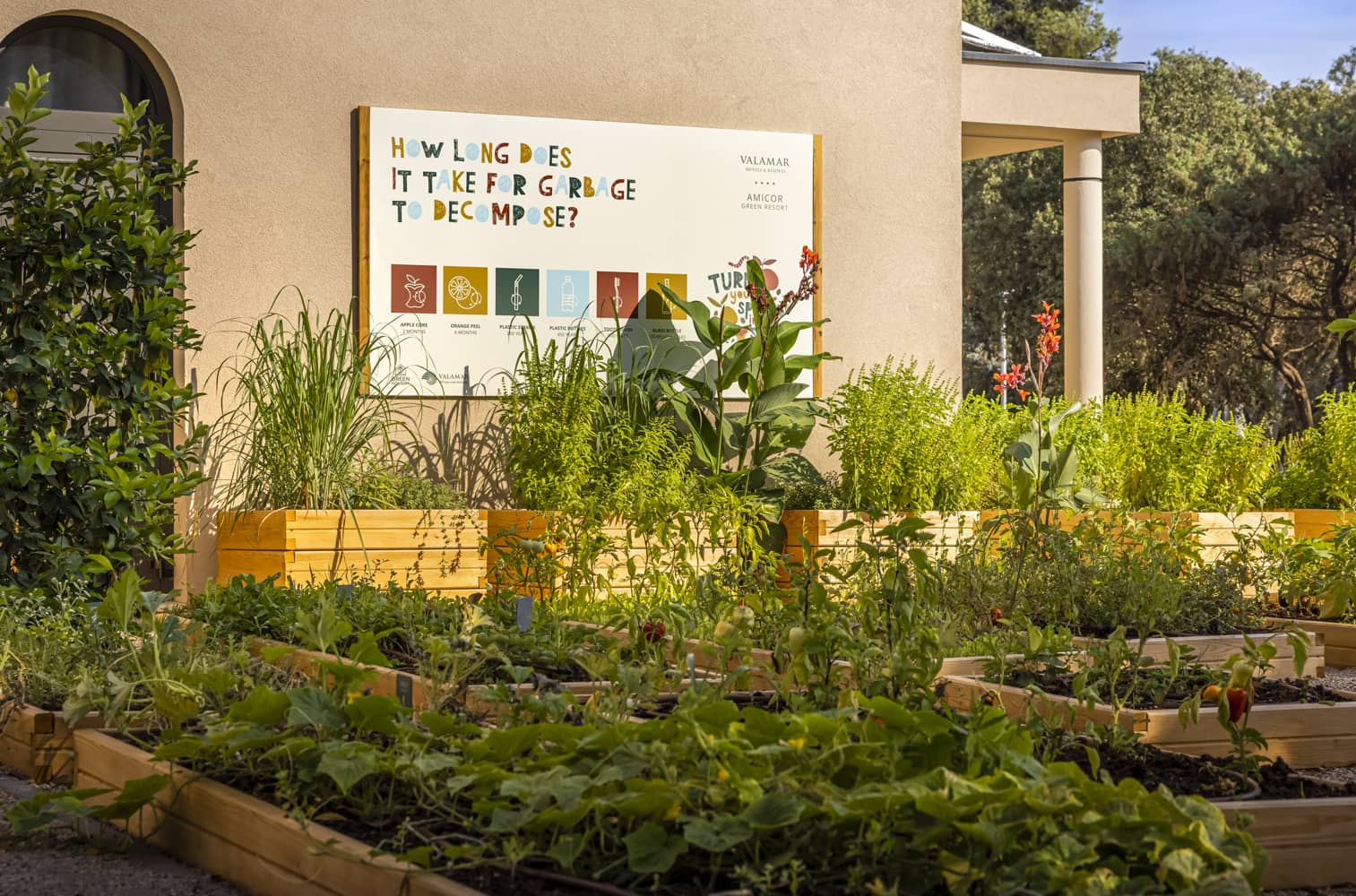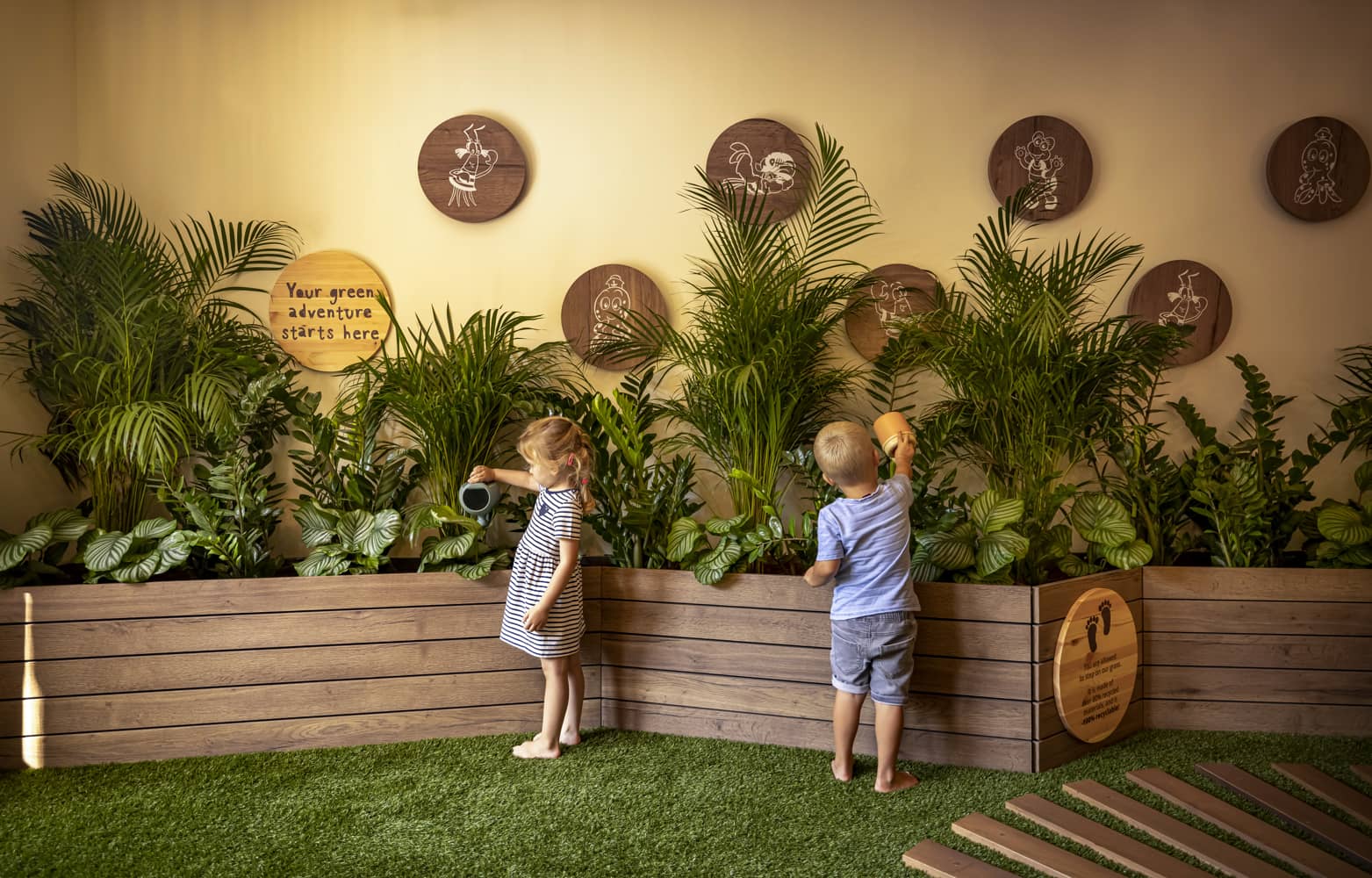Valamar turns waste into wonder
At Valamar, we understand the pivotal role sustainability plays in shaping the future of hospitality. Embracing sustainable practices such as composting is no longer just an option – it's a necessity.
Digging deep into waste
So, how exactly does composting work in the world of hospitality? This sustainable solution manages organic waste generated by hotels, restaurants and other establishments by collecting organic materials such as food scraps, coffee grounds and landscaping trimmings. These materials are then transferred to composting facilities or on-site composting systems, where they undergo decomposition through the action of microorganisms like bacteria, fungi and worms.
During this process, organic matter breaks down into nutrient-rich compost, a valuable soil amendment used to enrich gardens, landscapes and agricultural fields. Composting requires properly managing factors such as moisture, aeration and temperature to ensure optimal decomposition and the production of high-quality compost.
Giving back to the earth
Composting…
Cultivating a greener future
Composting is more than just a method of waste management – it's a powerful tool for reducing our environmental footprint. There are a myriad of reasons why composting holds such significance in the realm of hospitality.
Composting diverts organic waste from landfills to reduce overall waste volume.
Composting programs can lead to reduced waste disposal costs and potential revenue generation. Food scraps are one of the largest and heaviest portions of the waste stream and their recovery is increasingly cost-effective.
Composting creates nutrient-rich compost, conserving resources like water and energy while promoting soil health and plant growth.
Composting demonstrates environmental responsibility, appealing to eco-conscious guests and a better brand reputation.
Involving staff in composting initiatives fosters a sense of environmental stewardship and teamwork within the workplace.
Composting initiatives contribute to community sustainability efforts and cultivate positive relationships with local residents and businesses.
Composting programmes provide educational opportunities for staff and guests and raise awareness about environmental sustainability.
Compost can enrich landscapes and gardens to upgrade the aesthetic appeal of hotels, camps and restaurants.
By prioritising composting, hospitality businesses demonstrate a commitment to long-term sustainability and contribute to a healthier planet for future generations.

At Valamar, we are dedicated to integrating composting into our operations as part of our broader sustainability strategy. Through eco-friendly initiatives and programmes, we strive to minimise our environmental footprint, enhance guest experiences and contribute to the well-being of the communities in which we operate.

Sow, grow, compost
Over the past year, we achieved a commendable 53% share of selective waste, yet we recognise the ongoing opportunity for improvement. Our aim? To annually increase this percentage, leveraging not just awareness campaigns but strategic investments in infrastructure and initiatives.
From food scraps to soil
Participating in the pilot project “Reduce food waste, cook for your guests,” spearheaded by the Environmental Protection and Energy Efficiency Fund, exemplifies our proactive approach. Through this initiative, we rigorously tested various composting devices across our hotels and camps, diverting biowaste from landfills to be repurposed as valuable resources.
In the past year alone, we composted an impressive 437 tonnes of biowaste, harnessing its potential to enrich the landscapes of our resorts, hotels and camps. Every coffee ground and banana peel contributes to our sustainability mission, nourishing our surroundings and fostering a greener, healthier environment.
By 2025, we plan to completely transition to renewable energy sources and further invest in the sustainable development of tourism that contributes to the calibre of our products and services, employee satisfaction, local suppliers and the quality of life in our destinations

By 2025, we plan to completely transition to renewable energy sources and further invest in the sustainable development of tourism that contributes to the calibre of our products and services, employee satisfaction, local suppliers and the quality of life in our destinations
 Ivana Budin Arhanić a member of the Valamar Management Board
Ivana Budin Arhanić a member of the Valamar Management Board
Waste warriors
In the fast-paced world of hospitality, composting emerges as a vital tool for reducing waste. By embracing this practice, we are demonstrating environmental leadership and reaping tangible benefits. Prioritising composting as part of our comprehensive sustainability strategy plays a key role in driving positive environmental change. It is yet another positive step towards shaping a more sustainable future for the hospitality industry.
Looking ahead, Valamar remains steadfast in implementing the best practices to minimise biowaste. Our vision is to position Valamar as a leader in sustainable hospitality, setting a benchmark for excellence in the hospitality industry. What lies ahead on our journey is a greener, more sustainable tomorrow.
